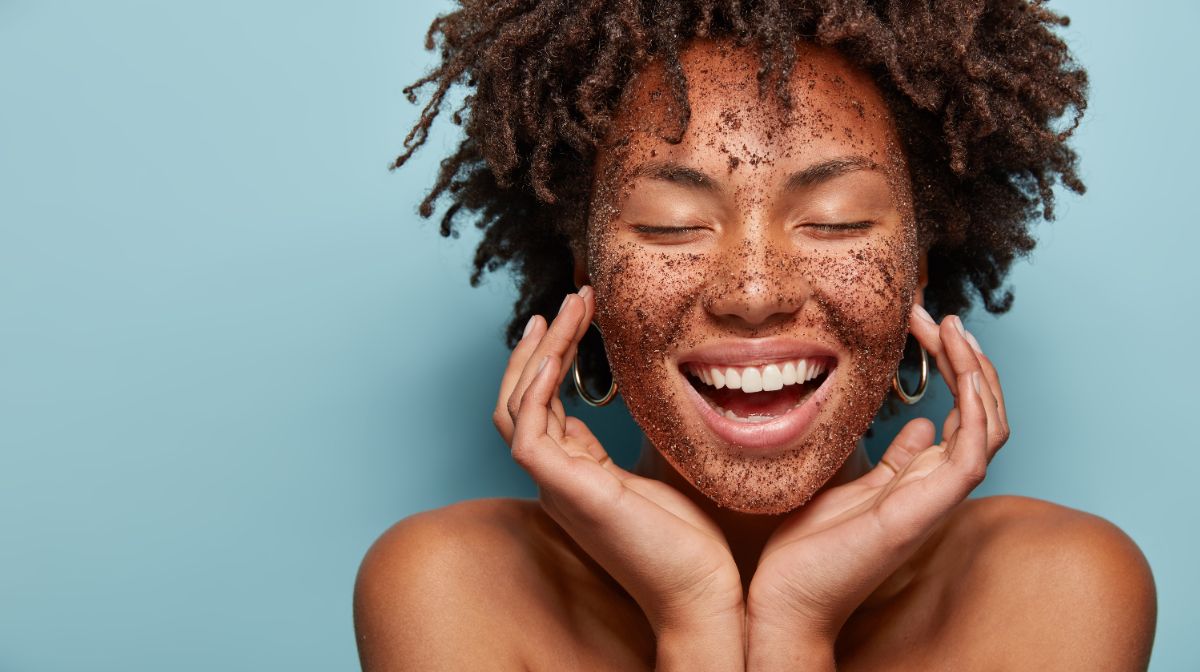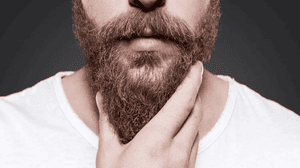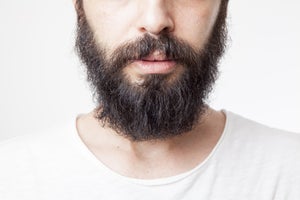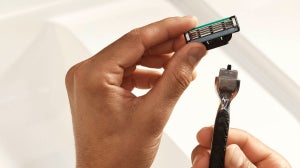
At Venus, we know that any beauty routine that truly cares for your body and skin should leave you looking healthy and glowing. That's why when it comes to shaving and hair removal clearing away the barrier of dead skin that builds up over time is a must!
An exfoliating scrub is one of the most basic steps that helps with the natural turnover of your skin's cells. Why is this so important to hair removal, though? The answer is that - whether you shave, wax or epilate – ensuring you can easily reach hair growth is essential for its smooth removal.
In this guide, you will discover the best ways of how to exfoliate skin effectively. You'll also learn how to care for your body and the answer to burning questions, such as whether you ought to exfoliate before or after shaving.
What Is Exfoliation?
If you're new to it, then you may want to know exactly: what is exfoliation? Simply put, this is any process that clears away dead skin cells to encourage the body's skin turnover process.
Any skin that doesn't shed naturally can quickly become dry, potentially resulting in clogged patches. This is where exfoliating scrubs come in handy. Removing dead skin cells and sebum is one of the best ways to avoid clogged pores, dull skin and, perhaps most importantly of all, a difficult shave!
Why Is Exfoliation Important When Shaving?
When you exfoliate, you make your skin smoother. As such, it will offer less resistance to the razor blade as it passes over the hair you want to remove. We recommend the full Venus line-up to accommodate all women's shaving needs. For example, Venus Extra Smooth Razor Blades feature Lubrastrip technology to help your razor glide over your skin's surface. Nevertheless, even with this feature, unexfoliated, dry or bumpy skin will be a whole lot harder to shave.
This means that whether you're shaving legs before a beach day or unwanted neck hairs for an unbeatably smooth appearance, exfoliating skin is a great idea. Just like shaving gel makes the surface your razor moves over smoother, exfoliating cuts down on the work that your razor has to do.
What Are the Benefits of Exfoliating?
The benefits of exfoliating your skin include:
- The more rapid and thorough removal of dead skin cells
- The appearance of exfoliated skin is generally healthier and revitalised
- Deal with clogged pores in your skin which may otherwise lead to spots
- The absorption of moisturisers and serums is often more complete following an exfoliation
- Some people find that it boosts collagen production over time, offering greater skin elasticity
How to Exfoliate Your Body
Knowing how to exfoliate your body properly means being able to adjust your method according to which body parts you are working on. Let's deal with the most common ones.
How to exfoliate your face
When you know how to exfoliate your face, you can rejuvenate your look often to a considerable degree. The Venus dermaplaning range is ideal for exfoliating facial skin because, although it also removes fine hairs, it is also a great way to remove skin cells, grime and oils. Our guide to face shaving offers more details about how to get into dermaplaning at home.
How to exfoliate your arms
Whether you want to shave your arms or would simply like to exfoliate the skin on them, the best way is to use a brush or exfoliating mitt and rub your skin gently, ideally with some soapy water for lubrication. About half a minute per arm is usually enough to do the job so it's something to consider the next time you take a shower.
How to exfoliate your legs
If you want to know how to exfoliate legs, then the good news is that you can do this in exactly the same way as your arms. When you exfoliate legs, be careful not to slip over in the shower, so why not run a bath the next time you want to exfoliate your legs instead? That's also a good tip if you want smooth legs from shaving them, of course.
How to exfoliate your pubic area
To exfoliate your pubic area, Venus' Skin Smoothing Exfoliant for Pubic Hair is a great product that requires no expertise. Even if you already know how to exfoliate your pubic area with a loofah or similar product, you may find it offers a more gentle exfoliation experience. This dermatologist and gynecologist-tested product is straightforwardly worked in by hand to exfoliate your pubic area gently.
Should You Exfoliate Before or After Shaving?
The short answer is that – for all of the beneficial reasons outlined above – you should exfoliate before shaving. Doing so helps to increase blood flow, remove dead skin, make for a smoother path for your razor and so on. Exfoliating your body before your razor gets near gives you the best change of the closer shave.
However, what this doesn't mean is that you shouldn't exfoliate after shaving. Although less essential than the need to exfoliate before shaving, post-shave exfoliation sessions can also be beneficial. Don't feel the need to exfoliate straight away after shaving, though, because it is more important to remoisturise the skin at this point. Further exfoliation a few days afterwards can help to prevent ingrown hair, however, so this is a good step to bear in mind.
Exfoliating Skin – Some Healthy Habits to Get Into
Make sure you're keeping your skin happy with some more of our top tips! To avoid over-exfoliation and unintentionally drying out your skin, we suggest that you keep your routine to twice a week at most, depending on the needs of your skin.
Another awesome skincare tip to remember is to always apply UV protection after exfoliating as your skin can be more vulnerable to sun damage at this time.
Use products with natural formulations
A great way to help stop skin irritation is to try using exfoliators for sensitive skin and look for formulations that are free of artificial dyes and chemicals.
Heavily perfumed products are more likely to cause skin irritation. Note that your skin's surface may be particularly vulnerable immediately after you exfoliate.
Use razors designed for specific body parts
One of our most important bits of advice for women shaving is to find a Venus razor that suits them as they are created for the body contours more typically found among women, as opposed to a man's beard razor, for example.
On top of this we'd suggest using a different razor for intimate shaving than you'd use on your legs or for facial shaves, such as the Venus Pubic Hair and Skin Razor. For your legs, why not try a Venus Deluxe Smooth Swirl Razor which comes with a FlexBall head? To keep your facial hair removal and exfoliation separate, we'd recommend our Dermaplaning Razor which does two jobs at once. This separation will help to keep the best possible hygiene for hair removal and reduce your risk of irritation!
Keep your skin hydrated
Along with using a nourishing moisturiser, staying on top of skin hydration could include limiting your showers to no more than ten minutes in lukewarm water. If you want to rehydrate facial skin, then the Venus Hydrating Face Serum is the ideal product and you can use it on your face whether or not you've been exfoliating it.
More widely, remembering to drink water throughout the day will also help to support all your hard work looking after your skin’s surface.
Keep an eye out for irritation
Our final tip is especially important if you have sensitive skin or you're prone to breakouts – remember that your skin's barrier is always changing so watch for any changes. If you're following our exfoliation habits and still seeing regular rashes and breakouts, then this may be a sign that you need to scale back your exfoliation routine or speak to a medical professional!
Your exfoliation lessons
Now that you know how to exfoliate with our Venus skin exfoliation tips, you should be able to see why this part of shaving preparation is a skincare must.
Be sure to try this advice yourself before your next pamper session and remember everything you've learned – exfoliate before shaving for the optimal results that your skin will love!
Exfoliation FAQs
What are the types of exfoliation?
People can learn how to exfoliate skin in two main ways:
- Physical - With a simple scrub, this technique manually buffs away any dead skin cells.
- Chemical – With acid-based products you can break down the bonds between dead skin cells but these can be harsh and may require specialist supervision.
Newer technologies like laser and microdermabrasion are salon-based exfoliation options you may want to explore.
What happens if I don't exfoliate before shaving?
Moving your razor over areas which are clogged with dirt and dead skin generally means you’ll need to make more passes with your shaver or razor blades as you have less optimal blade and hair interaction
How do you exfoliate intimate areas?
Our exfoliant in the Venus Pubic Hair and Skin range is designed to gently prep intimate areas for shaving and has been designed without parabens, dye fragrance or silicones. Try applying this smoothing formula before your next trim!









